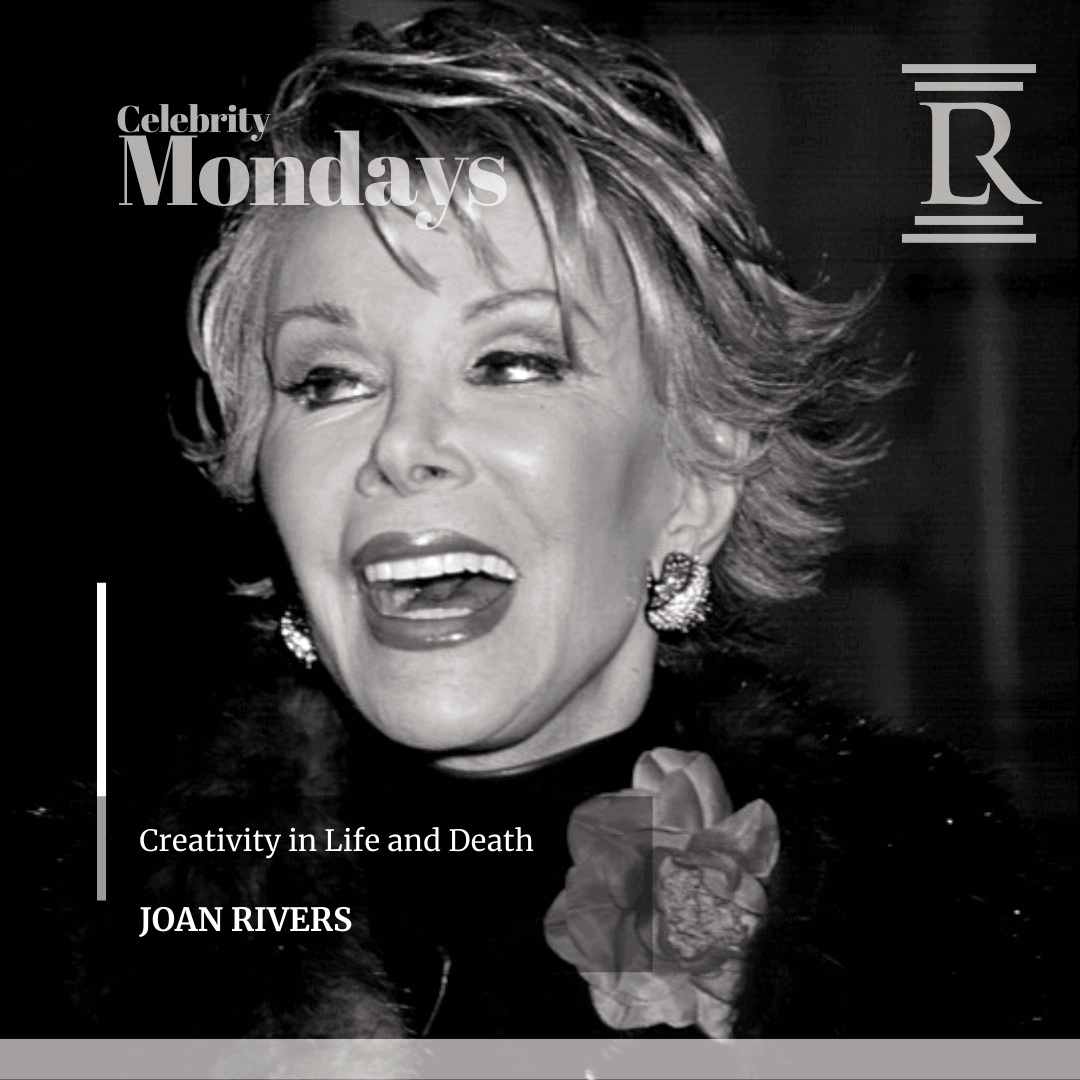Joan Rivers made us all laugh through her unique brand of comedy which typically involved skewering famous celebrities. Sadly, she died on September 4, 2014, from what appears to be a botched medical procedure.
As an estate planner, whenever a celebrity dies I think to myself “I bet he/she did not have a plan in place.” This is because there are so many recent examples of celebrities who failed to protect their family and other loved ones through a well thought out and strategic estate plan. But Rivers was an exception.
We only know about Rivers’ estate because of a filing in New York just after she died. Her estate lawyers lodged her will with the local probate courts (which is a requirement in almost all jurisdictions). The Will indicates that Rivers had an advanced estate plan in place to handle her estimated $150 million estate.
Rivers’ will was merely what is called a “pour-over will,” which essentially tells the courts three things:
- A Trust has already been created.
- Who is in charge of the trust and the estate.
- Instructs the courts and the executor to transfer any and all assets to the trust (if they are not already in the trust.)
Usually when someone (especially a celebrity dies) with or without a will, their entire estate, and private life is laid bare. Everyone gets to know how much money they had, how much debt they had, and where, and with whom, their money will end up. Sadly, the family dirty laundry also becomes public when this or that family member inevitably claims to be entitled to some part of the estate.
We did not see this with the estate of Joan Rivers. This is thanks, in large part, to the smart estate planning she did before she died.
We do not know much about her estate. Trusts are meant to keep your private life, private. The only things we know are what was in the will (which is always a matter of public record) and what has leaked out over the years. Here is what we know:
Joan Rivers set up a trust called the “Rosenberg Family Trust” (her married name was “Joan R. Rosenberg”). She is rumored to have made gifts of her estate to her longtime assistants, as well as set up a pet trust to care for her four dogs. The bulk of her estate went to her children.
That’s pretty much it. For someone who lived a very public life, her estate after her death was kept mostly private. That is likely by design.
One of the only ways to achieve privacy in your estate after you die is to set up a living trust.
Although most of us have neither the fame nor the fortune of Joan Rivers, we can still use a trust to protect and provide for our loved ones. Some of the primary benefits of a trust include:
- Avoids the expensive and public probate system;
- It is mostly cheaper to administrate;
- It is quicker to administrate;
- Can easily distribute property held in different states;
- It is private and confidential;
- It can prevent formal conservatorship and guardianship proceedings; and
- It provided long-term continuity of your assets.
There are also a ton of tax advantages provided by a living trust that a Will cannot provide.
The estate of Joan Rivers also demonstrates another advantage of a living trust – you can be creative. Joan Rivers left property to her employees and also set up a pet trust so that her dogs would be cared for after she is gone.
In today’s ever-changing world, flexibility and creativity are essential to properly planning for your estate. Our social imprint is larger than ever. A living trust can help you not only leave your estate but leave a lasting legacy for years after your death.
For example, you could set up a digital asset trust or a social media trust to run your accounts or close them out after you’re gone. Or if you have a special collection of coins, or wine, or shoes, (or whatever), you can set up a trust to specially handle your wishes for those collections.
As a side note, if you have a special collection, please see our post “Special Estate Planning Considerations for Art and Other Collections.”
In sum, Joan Rivers is an example of how we all should be prepared. Joan’s life was cut short after a failed medical procedure. But her estate was prepared, even if her death was unexpected. At Atlantis Law we work with families to ensure that their estates are prepared should the worst happen.
If you have no plan, or if you are worried about whether your plan is adequate, schedule a Life and Legacy Planning Meeting with me. After this 2-hour working meeting, you will know exactly what kind of plan you need, how to achieve it, and what your next steps should be.




